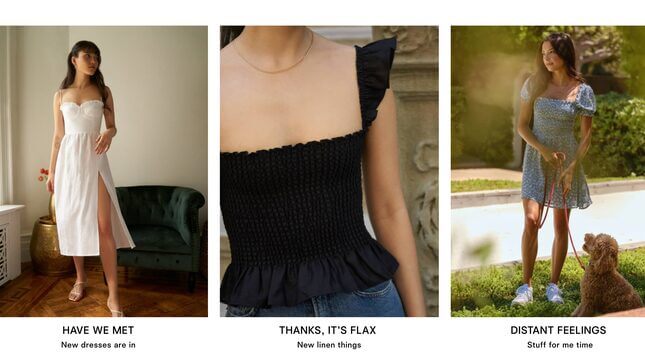Reformation Has Always Shown Us What It Is
Latest

Reformation, the clothing brand beloved by influencers obsessed with sustainability and looking hot in equal measure, has recently been forced to reckon with their alleged history of insidious, racist workplace practices after former staffers called the company out for their craven attempt at capitalizing on the collective protests around police violence and the murder of black people.
On May 31, after a week of protests, Reformation posted a bland message on their official Instagram, of the sort that many other brands have attempted in a drive to prove to their customer base that they care, but not too much. The comments section of this post, which did not outline how much money Reformation was giving or if they had even given any at all,
was commandeered by past employees to air their grievances about workplace discrimination and casual racism while working at the brand.
-

-

-

-

-

-

-

-

-

-

-

-

-

-

-

-

-

-

-

-

-

-

-

-

-

-

-

-

-

-

-

-

-

-

-

-

-

-

-

-








































